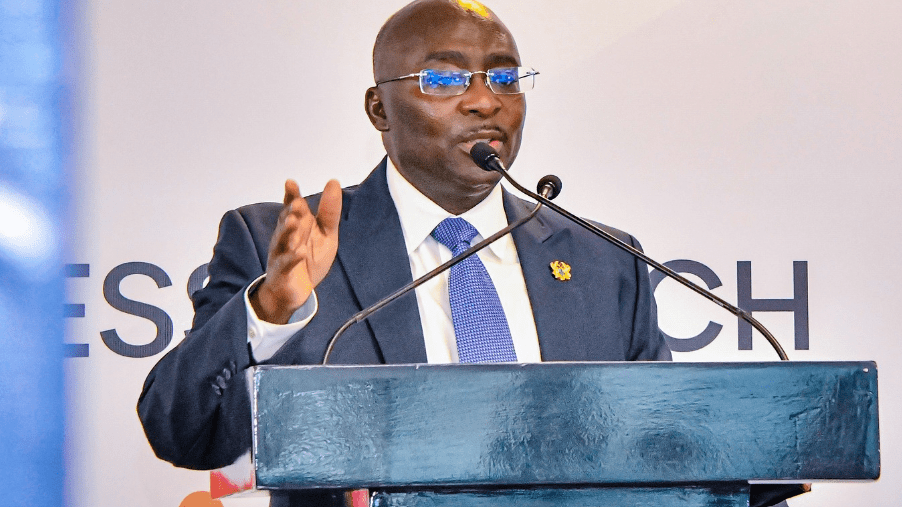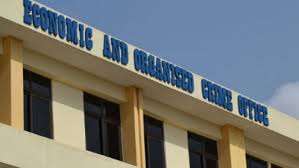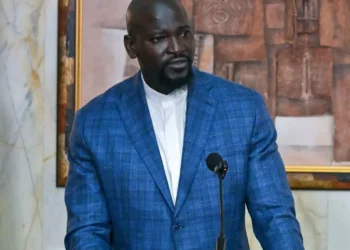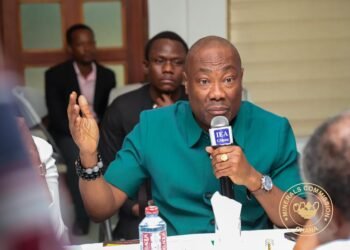The detention of Bernard Antwi-Boasiako, widely known as Chairman Wontumi, who serves as the Ashanti Regional Chairman of the New Patriotic Party (NPP), has triggered widespread concern across the nation.
Former Vice President Dr. Mahamudu Bawumia has expressed deep unease over the circumstances surrounding the arrest, citing a lack of transparency and growing uncertainty about the detained politician’s legal status and location.
In a strongly worded statement, Dr. Bawumia emphasized the critical importance of upholding constitutional rights, regardless of political affiliation or social standing.
He underscored that democratic values can only thrive in a society where “justice and due process are not optional; they are the foundation of our democracy.”
“I have been in constant touch with Mr. Wontumi’s legal team since this morning to ensure that his rights are protected and that due process is followed. I commend them for their professionalism and vigilance.”
Dr. Mahamudu Bawumia
The arrest occurred shortly after Mr. Antwi-Boasiako honored a scheduled meeting with the Criminal Investigations Department (CID) on Tuesday, May 27.
After the engagement, however, he was detained by operatives from the Economic and Organised Crime Office (EOCO), with no public explanation provided at the time for the action taken.

According to a statement from the CID, Wontumi was initially questioned on allegations including illegal mining activities, pollution of water bodies, and unauthorized entry into a forest reserve.
The police disclosed that he cooperated fully during the interrogation, submitted a statement, and was subsequently granted bail. He was instructed to report to the authorities the following day at 3 p.m. on Tuesday, May 27, 2025.
The surprise move by EOCO to detain him has, however, created confusion and triggered sharp criticism from political figures and legal experts.
Many believe the move may infringe upon his civil liberties and that the agencies involved must clarify their procedures and legal rationale.
EOCO Urged To Follow Law In Wontumi’s Arrest Case
Furthermore, Dr. Mahamudu Bawumia firmly underscored the importance of ensuring that Ghana continues to be a nation anchored in the rule of law rather than one where arbitrary decisions or politically influenced actions dictate the course of justice.
He emphasized that the integrity of the country’s democratic framework depends on the consistent application of legal principles, not on selective enforcement or expedient interventions driven by partisan motives.

For democracy to remain intact, he argued, “our Republic is strongest when our institutions are both firm and fair.”
Accordingly, Dr. Bawumia strongly urged EOCO and all other relevant law enforcement and investigative agencies to operate strictly within the boundaries of Ghana’s legal framework.
He emphasized that their actions must be guided by transparency, fairness, and respect for due process at all times to maintain public confidence and uphold justice.
“In a democratic environment as ours, no individual is above the law..Any deviation from these principles risks undermining public trust in our justice system and weakening the democratic values we have worked hard to build.”
Dr. Mahamudu Bawumia
Chairman Wontumi’s arrest carries broader implications for Ghana’s political landscape, particularly coming on the heels of the recently concluded general elections.

While EOCO remains tight-lipped, pressure is mounting for clarity. Analysts suggest that continued silence could damage the credibility of anti-corruption and law enforcement agencies, especially if suspicions of bias or arbitrariness persist.
In the meantime, calls are growing for greater legislative oversight over security and investigative bodies to prevent excesses.
The broader concern remains the potential erosion of public trust in democratic institutions—a trust built over decades and increasingly fragile in times of political uncertainty.
Dr. Bawumia’s intervention, while political, underscores a foundational concern: the balance between law enforcement and civil liberties must never be ignored, especially in a country that prides itself on being a beacon of democracy in the region.



















